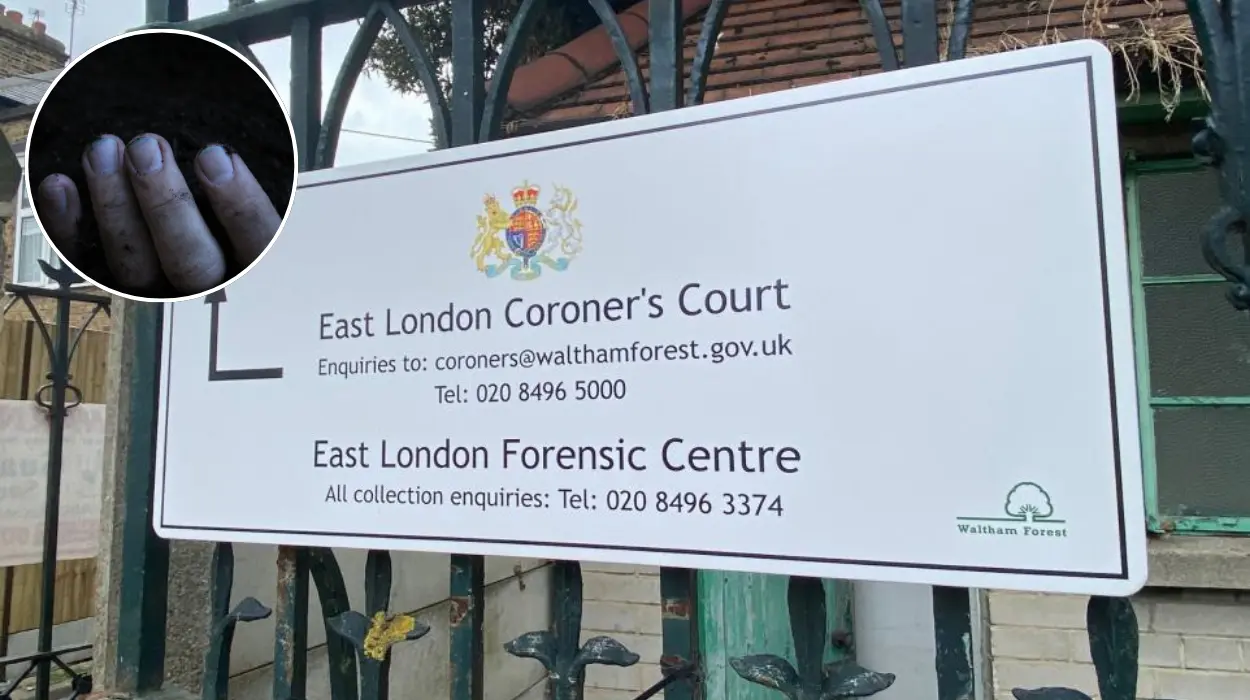Key Points:
- Stephen George Moore, 69, was found dead at his home in Butteridges Close, Dagenham, in January 2025.
- East London Coroner’s Court heard Moore may have died from ketoacidosis caused by chronic alcohol dependence and starvation.
- Police, paramedics, and fire services attended the scene after concerns were raised for his welfare.
- He was pronounced dead at 3:42pm on 28 January 2025.
- A post-mortem was inconclusive until toxicology confirmed ketoacidosis as the cause of death.
- Moore also suffered from ischemic heart disease, listed as a contributing factor.
- Senior coroner Graeme Irvine has opened an inquest; a final hearing is scheduled for September.
- Mr Moore was a divorced former council worker originally from Barking.
- His family have been declared ‘interested persons’ and have been asked to provide background information.
- Coroner’s staff will investigate whether Moore was receiving treatment for alcohol dependence.
A coroner has opened an inquest into the death of a Dagenham pensioner who is believed to have died from starvation and chronic alcohol dependence, reported by Charles Thomson, the Investigations Reporter from Barking and Dagenham Post.
Who was Stephen George Moore?
Stephen Moore, aged 69, was a divorced former council worker originally from Barking. He was found unresponsive on the floor of his home in Butteridges Close, Dagenham, in late January. Senior coroner Graeme Irvine confirmed the basic background of the deceased at East London Coroner’s Court, noting Mr Moore’s past employment in local government, though the specific council was not identified.
When and how was his body discovered?
Emergency services were alerted on the afternoon of 28 January 2025, after concerns were raised about Mr Moore’s welfare. The court did not hear who raised the alarm. Paramedics and police were first to respond, but the London Fire Brigade had to force entry into the property.
Mr Moore was pronounced dead at 3:42pm, having been found unresponsive on the floor of his residence.
What did the post-mortem reveal?
The Metropolitan Police Service referred the death to the coroner, citing no clear cause of death at the scene. A post-mortem was conducted on 30 January, but initial findings were inconclusive. Toxicology results later confirmed the cause of death to be ketoacidosis, a condition that occurs when the body has high levels of acid in the blood.
Pathologist Dr Vasi Sundaresan attributed the ketoacidosis to a combination of chronic alcohol dependence and starvation. Mr Moore was also found to have ischemic heart disease, which was listed as a contributing factor in his death.
What actions were taken by the court?
At the inquest opening on Tuesday, 22 April, Coroner Irvine declared Mr Moore’s family to be interested persons—a legal designation allowing them access to evidence and the opportunity to question witnesses during the final inquest.
The coroner also asked the family to provide a background statement that would detail Mr Moore’s employment history, education, family life, health issues, and any concerns they may have regarding the circumstances of his death.
Additionally, Mr Irvine instructed his staff to investigate whether Mr Moore had been receiving any treatment for alcohol dependence prior to his death.
When is the final inquest?
The full inquest hearing is scheduled for September 2025. Until then, investigations will continue to gather further evidence and build a comprehensive profile of Mr Moore’s life and circumstances leading to his death.
Elderly Deaths and Coroner Inquests in East London
In East London, the deaths of elderly individuals—particularly when occurring at home or under unclear circumstances—often fall under the jurisdiction of the East London Coroner’s Court. Inquests are commonly opened when the cause of death is not immediately apparent, especially if the deceased was found alone, had complex medical conditions, or if any element of the case raises concern.
The inquest process seeks to establish how, when, and where a person died. However, in many elderly cases, the final verdict may remain “open” due to a lack of conclusive evidence, especially where delayed discovery or medical complexity complicates the findings.
Recent Cases from East London Coroner’s Listings (2024–2025)
| Name | Age | Date of Death | Location | Status |
|---|---|---|---|---|
| Barbara Patricia Wilmott | 96 | 13 April 2025 | The Royal London Hospital, Whitechapel | Inquest opened and closed – natural causes likely |
| Terence Larner | 90 | 21 November 2024 | Hornchurch | Inquest ongoing – cause under review |
| Vera Flower | 88 | 6 October 2024 | Queen’s Hospital, Romford | Inquest opened due to unclear circumstances |
| Kenneth Foster | 79 | 16 May 2024 | Whipps Cross University Hospital, Leytonstone | Inquest in progress – possible open verdict |
Common Patterns in Elderly Death Investigations
- Isolation and Delayed Discovery:
When elderly individuals live alone, it is not uncommon for their passing to go unnoticed for days or weeks. This delay often complicates post-mortem analysis and can hinder accurate cause-of-death determination. - Medical Complexity:
Multiple chronic conditions, common in later life, may mask the exact cause of death—making it difficult to determine whether death was due to natural causes, an accident (such as a fall), neglect, or less commonly, suspicious circumstances. - Coroner’s Inquests and Open Verdicts:
If initial medical examinations or investigations raise questions, a coroner’s inquest is opened. When evidence remains inconclusive, an “open verdict” may be returned, meaning the court is unable to determine the exact cause of death.
The East London Coroner’s Court plays a vital role in ensuring that the circumstances of these deaths are investigated with professionalism, dignity, and transparency—particularly when answers are sought by grieving families and the broader community.
Note: The story regarding Coroner’s investigation of Stephen George Moore’s death is originally covered by Charles Thomson, the Investigations Reporter from Barking and Dagenham Post.



